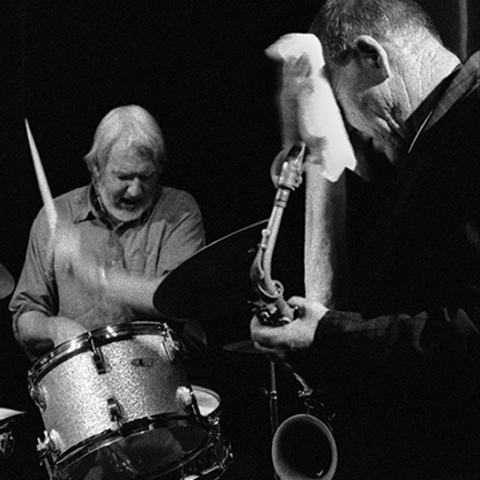
Back when film photography was mainstream, many photographers—maybe even most—didn't really like the darkroom. As soon as digital photography advanced far enough to give photographers the quality they wanted in their images, the vast majority forsook the no longer necessary evils of wet chemicals and fumes and safelights and embraced the newer and faster-paced frustrations of software, screen, and inkjet printer.
But Bru loved the darkroom and never wanted to join the revolution. He felt a strong affection for the enclosed space and amber light and an attachment to the equipment and supplies and processes that warrant the word love. It was where he exercised his craft, where he took the time to get to know the images he had captured, to learn their language, to hear their stories, to see the invisible. The darkroom was not just a place, it was a practice. A spiritual practice.
The darkroom is an intimate space. When a photographer shares it with you, and lets you see how they decide on the level of exposure, contrast, framing, where to burn in and where to dodge, there's a trust that forms a deep bond. When Bru let me see his images appear in the developer before he saw them himself, I knew I was special.
He had to press me to take up photography. I didn't feel I had the time to devote to it—I was working 30 hours a week and had more than enough creative projects to fill my off-hours. Taking up a new craft that entailed lots of technical knowledge didn't seem practical. But he wanted to share his passion with me, so he bought me a Pentax K1000 and wrote on the accompanying card: "Welcome to the darkroom."
I realized later that Bru needed to teach me photography because he needed to confer with someone about printing. He loved to bounce ideas off me. I was the substitute for the photographic community he'd left in Sydney, where he was well-known and in some corners well-loved. He told me I was one of the best students he'd ever had. I think he had to believe this more than it had to be true.
He relied on me more and more as his cognitive abilities declined. I helped him keep track of all the variables that go into making a print. Eventually, I had to become the craftsman he once was and guide his decisions to get the print to be the way he saw it in his mind and wanted to see it with his eyes. I really did help him make some great prints. And then I helped him make some good prints among a bunch of indifferent ones. And then, when he could no longer keep the variables straight and the steps in sequence for even a few minutes, I tried to help and pretty much failed.
I thought that the day he decided he was through with the darkroom would be terribly traumatic for him. But it was anti-climactic.
Looking like he was afraid he was letting me down, he said, "I'm not going into the darkroom anymore."
"I think that's a good decision. You haven't been enjoying it very much."
"No. I haven't been."
I smiled, and he smiled back, so relieved.
Then I went upstairs and burst into tears.
The darkroom is almost just as he left it. I put away the negatives he had been working with and pressed his last prints flat, but work prints are still scattered over the dry bench, his weights and mats still sit next to the enlarger. The drying screen is still suspended over the wet bench. Neither of us has rolled it back up and hung it out of the way in its designated spot on the wall. Bru has said a few times that we should clear everything out, but I tell him no, I really want to use it when I retire and have more time.
It's true. I want to get back into the darkroom when I have more time. I'm not sure when that will happen, though, if ever.
The last image he printed was one of me. I don't know if it's the London Underground or the Paris Métro, but we are on a subway train, and I'm in the foreground, up close and out of focus—intentionally—with passengers packed into all the seats behind me. There are all sorts of people, of different classes and races, one sleeping, others looking tired, one smiling. It doesn't have quite enough contrast, one area really needs some burning in, and there are small points that need retouching that Bru will never do.
It's still a great image. It deserves a better print. I don't know that it will ever get one.




